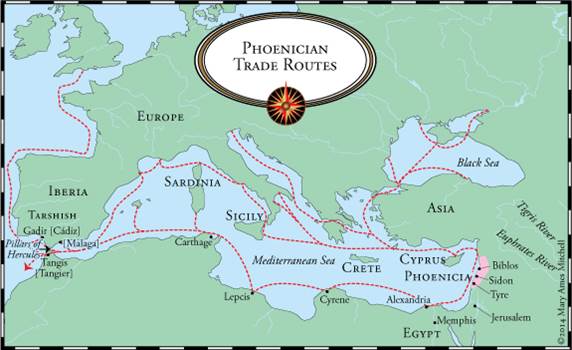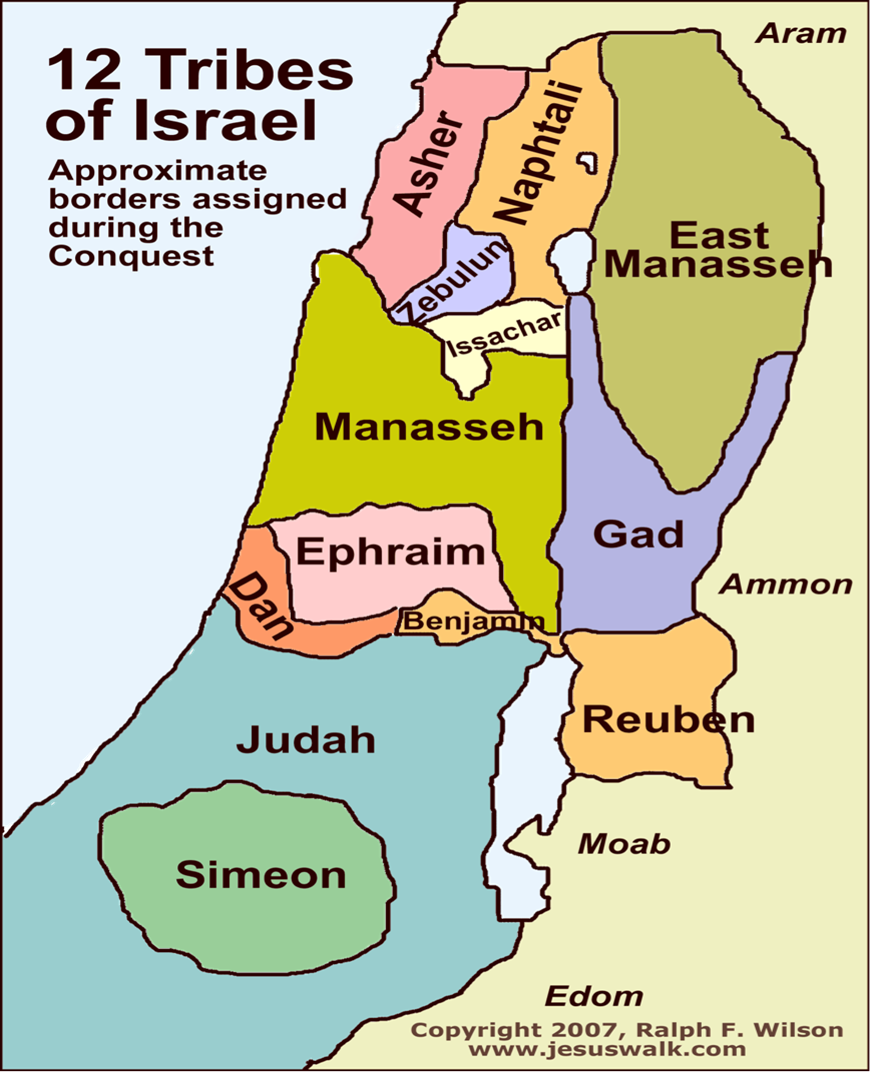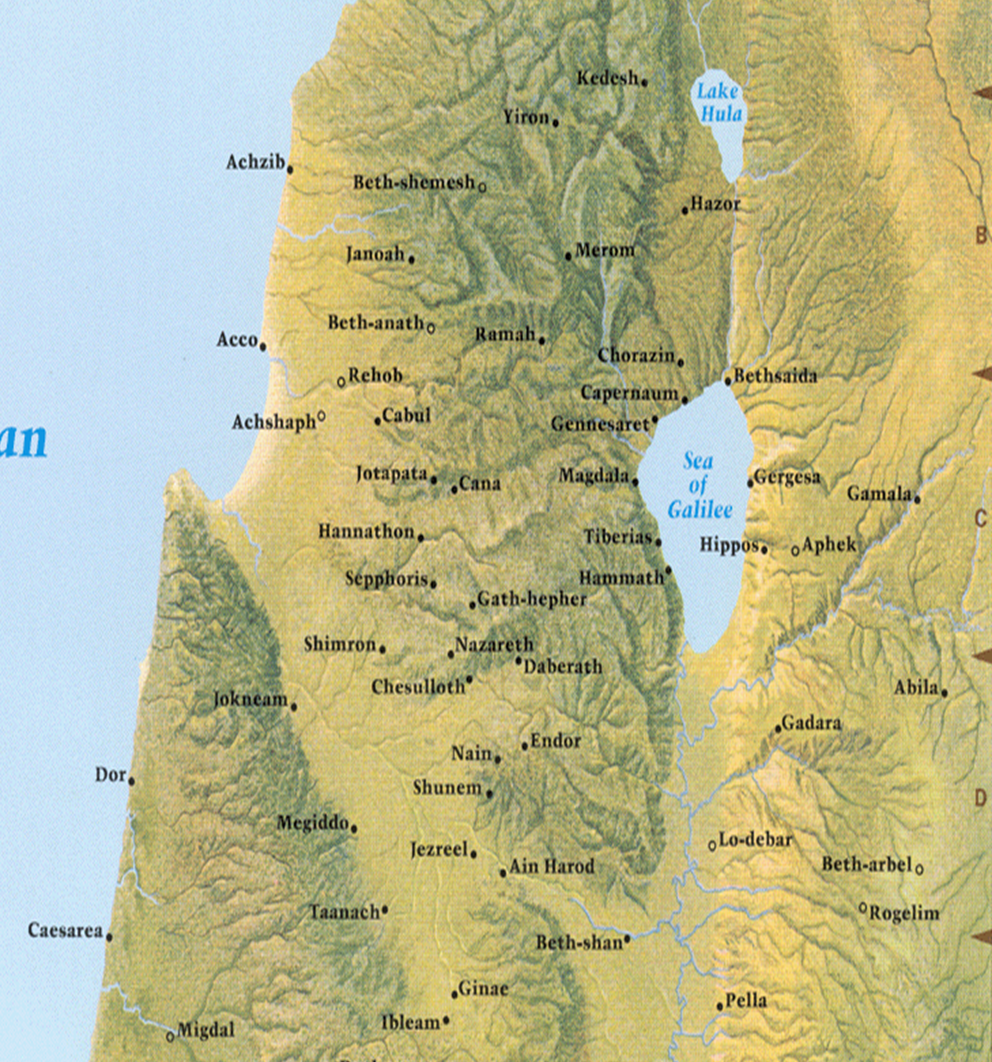Judges 4-5. Deborah's song, part 6.
length: 68:02 - taught on Feb, 17 2017
Class Outline:
Title: Judges 4-5. Deborah's song, part 6.
Announcements / opening prayer:
JDG 5:12 "Awake, awake, Deborah; Awake, awake, sing a song! Arise, Barak, and take away your captives, O son of Abinoam.
JDG 5:13 "Then survivors came down to the nobles; The people of the Lord came down to me as warriors.
JDG 5:14 "From Ephraim those whose root is in Amalek came down, Following you, Benjamin, with your peoples; From Machir commanders came down, And from Zebulun those who wield the staff of office.
JDG 5:15 "And the princes of Issachar were with Deborah; As was Issachar, so was Barak; Into the valley they rushed at his heels; Among the divisions of Reuben There were great resolves of heart.
Reuben was resolute not to participate.
JDG 5:16 " Why did you sit among the sheepfolds, To hear the piping for the flocks? Among the divisions [brooks] of Reuben There were great searchings of heart.
Deborah asks in amazement, "Why do you sit among the streams of your plush land that God graciously granted you and only discuss the war?"
We are always to be comfortable in our souls but never complacent. We are always growing and God is often going to demand from us that we take leaps of faith into things we have never done or known or believed.
JDG 5:17 "Gilead [Eastern Manasseh and possibly Gad] remained across the Jordan; And why did Dan stay in ships? Asher sat at the seashore, And remained by its landings.
Gilead is.
Dan had amalgamated somewhat with the sea-faring Phoenicians and participated in their shipping industry. Since they are Canaanites, Dan chose to protect their industry rather than go to war.

The Phoenicians highly profited from their Mediterranean sea trade and Dan had been able to get in on the industry. The Phoenician's weren't at war with Israel, but they shared a common ancestry with the northern Canaanites. If Dan went to war with the Canaanites then their lucrative deal with the Phoenicians would have ended. This means that Dan had to be open with the Phoenicians that they would not get involved.
The exports of Phoenicia as a whole included particularly cedar and pine wood, fine linen from Tyre, Byblos, and Berytos, cloths dyed with the famous Tyrian purple (made from the snail Murex), embroideries from Sidon, metalwork and glass, glazed ceramics, wine, salt, and dried fish. They received in return raw materials, such as papyrus, ivory, ebony, silk, amber, ostrich eggs, spices, incense, horses, gold, silver, copper, iron, tin, jewels, and precious stones.
A typical merchant ship was 65 feet long and 16 feet wide. Cedar and pine from forests in Lebanon as well as red and purple fabrics would be traded in Greece for artfully crafted pottery, sculptures (both clay and bronze), and other products from all over Greece. Venturing into the Atlantic they would bring these products to the western coast of Africa near Senegal and lay them on the beach while they sent up smoke as a signal that they were there in order to trade. The African's would trade the gold of their land for these items. Now off to England and Ireland, more of the Greek pottery and jewels were traded for tin, which was necessary for making bronze. Heading back through the Strait of Gibraltar gold would be traded for iron in Spain. In places like Sardinia the Phoenicians established colonies in which industries were established. For instance in Sardinia the gold from Africa was skillfully transformed into gold jewelry, which would then be exported all over the Mediterranean. Also in Sardinia they made wares out of glass in the form of fine jars, necklaces, amulets, idols and religious items used in rituals. Onward to Egypt, objects were traded for linen which was indispensable in making sails for their many ships. They also obtained exotic animals such as monkeys and alligators, which were sought after by kings all over the Mediterranean.
One can imagine the profits and Dan was invested in this. To go to war against Canaanites would jeopardize the flow of goods and gold through their region.
JDG 5:17 " Gilead remained across the Jordan; And why did Dan stay in ships? Asher sat at the seashore, And remained by its landings.
Asher, situated on the northern coast stayed by the seashore.

What these had in common was that they loved earthly comforts more than Jehovah who had blessed them with earthly comforts.
Moses warned them of this before they crossed the Jordan in order to take possession of the land.
DEU 6:10 "Then it shall come about when the Lord your God brings you into the land which He swore to your fathers, Abraham, Isaac and Jacob, to give you, great and splendid cities which you did not build,
DEU 6:11 and houses full of all good things which you did not fill, and hewn cisterns which you did not dig, vineyards and olive trees which you did not plant, and you shall eat and be satisfied,
DEU 6:12 then watch yourself, lest you forget the Lord who brought you from the land of Egypt, out of the house of slavery.
We have read this passage several times over the years in order to illustrate this same principle. Certain passages so clearly address a common issue for fallen man, and that's why we see them often. There are several common problems that the soul of fallen man finds as obstacles to a relationship with God and in the Bible there are particular passages that deal with them powerfully and clearly.
JDG 5:18 " Zebulun was a people who despised their lives even to death, And Naphtali also, on the high places of the field.
Zebulun and Naphtali were the first called by Barak and they are specially commended for risking their lives.
It seems strange that the tribes of Judah and Simeon are not mentioned either among those who joined in the battle, or among those who stayed away. The only way in which this can be explained is on the supposition that these two tribes were never summoned by Barak because they were so involved in conflict with the Philistines, that they were unable to render any assistance to the northern tribes against their Canaanitish oppressors.
But even apart from Judah and Simeon, it is clear that enthusiasm for the cause of the Lord had great diminished in parts of the nation and that the internal unity of Israel had loosened considerably.
JDG 5:19 "The kings came and fought; Then fought the kings of Canaan At Taanach near the waters of Megiddo; They took no plunder in silver.
The advance of the Canaanites is given in just a few words, "they came and fought." What would it matter if we knew their tactics? They were doomed the moment Israel repented.
Deborah gives us a more precise location of the battle at Taanach in the valley of Jezreel. Megiddo is only a little more than four miles away.

Taanach and Megiddo are not five miles apart. Apparently the battle moved across the valley with final defeat coming at Endor.
As with Sisera and Jabin, at the torrent of Kishon,
Who were destroyed at En-dor,
Who became as dung for the ground.
Between Taanach and Megiddo there were several brooks which ran into the southern arm of the Kishon, that flowed through the plain to the north of both these towns, and all of them are going to overflow.
The Canaanite kings came upon this battlefield expecting a quick and decisive victory after which they would have returned home richer, but they took not plunder, not even one piece of silver.
JDG 5:20 "The stars fought from heaven, From their courses they fought against Sisera.
"The stars from heaven" = The power of God in heaven which threw the enemy into confusion, including the storm that brought the rains. He is the true Victor.
This is the true warrior and victor in the fight. Man can never take credit for a true victory. The victories of those who do not walk with God are not real victories. They are temporary relief at best. What does an enemy of God win when he defeats another in a battle? He doesn't receive anything eternal, and eventually he will be defeated by someone else, and he will always be defeated by death.
True victory in life belongs to God alone. All other so-called victories are temporary.
While it is true that Israel will find themselves enslaved again, this battle is a victory for the Lord who never loses a fight. Israel has been won for God and all they have to do is follow His law and they will enjoy the fruits of that victory. This battle is simply added to the long list of those who have gone to war against God and lost.
EXO 14:13 But Moses said to the people, "Do not fear! Stand by and see the salvation of the Lord which He will accomplish for you today; for the Egyptians whom you have seen today, you will never see them again forever.
EXO 14:14 The Lord will fight for you while you keep silent."
Although the event is so well known, we still find the greatest example of this in David vs. Goliath.
1SA 17:41 Then the Philistine came on and approached David, with the shield-bearer in front of him.
1SA 17:42 When the Philistine looked and saw David, he disdained him; for he was but a youth, and ruddy, with a handsome appearance.
1SA 17:43 And the Philistine said to David, "Am I a dog, that you come to me with sticks?" And the Philistine cursed David by his gods.
1SA 17:44 The Philistine also said to David, "Come to me, and I will give your flesh to the birds of the sky and the beasts of the field."
1SA 17:45 Then David said to the Philistine, "You come to me with a sword, a spear, and a javelin, but I come to you in the name of the Lord of hosts, the God of the armies of Israel, whom you have taunted.
1SA 17:46 This day the Lord will deliver you up into my hands, and I will strike you down and remove your head from you. And I will give the dead bodies of the army of the Philistines this day to the birds of the sky and the wild beasts of the earth, that all the earth may know that there is a God in Israel,
1SA 17:47 and that all this assembly may know that the Lord does not deliver by sword or by spear; for the battle is the Lord's and He will give you into our hands."
1SA 17:48 Then it happened when the Philistine rose and came and drew near to meet David, that David ran quickly toward the battle line to meet the Philistine.
1SA 17:49 And David put his hand into his bag and took from it a stone and slung it, and struck the Philistine on his forehead. And the stone sank into his forehead, so that he fell on his face to the ground.
1SA 17:50 Thus David prevailed over the Philistine with a sling and a stone, and he struck the Philistine and killed him; but there was no sword in David's hand.
1SA 17:51 Then David ran and stood over the Philistine and took his sword and drew it out of its sheath and killed him, and cut off his head with it. When the Philistines saw that their champion was dead, they fled.





